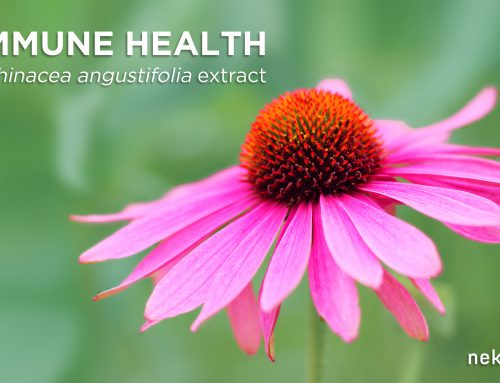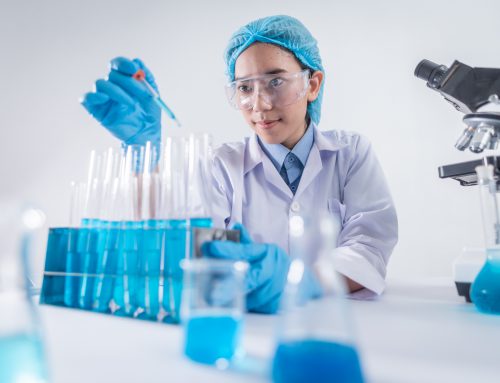An interesting recent review of S-Adenosyl-methionine (SAMe), published at the end of 2017, has provided a broad perspective on the role, efficacy and safety of SAMe in the treatment of depression, neuropsychiatric disorders, and co-morbid medical conditions.
The remarkable work of Sharma et al. has taken into consideration 132 studies – 115 clinical and 17 preclinical studies – and has provided evidence that oral doses of SAMe between 200mg and 3200 mg have similar efficacy to Tricyclic Antidepressants (TCAs) and selective serotonin reuptake inhibitors (SSRIs) and are superior to placebo in ameliorating depressive symptoms and Depression and Quality of Life rating scales.
SAMe may also be effective in combination with other antidepressants, both TCAs (Tricyclic antidepressants) and SSRIs (Selective Serotonin Reuptake Inhibitors), in case of inadequate response to drug therapy and patients with depression associated to other medical conditions i.e. HIV, Parkinson’s disease, osteoarthritis and fibromyalgia. In these two latter diseases, SAMe exerts anti-inflammatory and analgesic activity by enhancing proteoglycan bioactivity.
Furthermore, SAMe antidepressant activity has been associated with a greater speed of onset in comparison with TCAs which can take up to two weeks to improve symptoms. This supplement can be also successfully used in addition to standard antipsychotic drugs in order to improve quality of life and reduce aggressive behaviour in a subset of schizophrenic patients with low-active Catechol-O-Methyltransferase (COMT) activity. The authors conclude that SAMe supplementation holds promise for several neuropsychiatric conditions (Sharma 2017 https://www.ncbi.nlm.nih.gov/pubmed/28682528). Similar results were found by a Cochrane review in 2016 published by Galizia et al.
The highlights reported on SAMe may represent a promising alternative to the treatment of depression, neuropsychiatric disorders, and co-morbid medical conditions. In fact, the risks of SAMe compare quite favorably with prescription antidepressants, particularly in that it does not cause sexual dysfunction or weight gain (two of the most common causes for antidepressant discontinuation) and it is less likely to be life-threatening in patients who are at risk for overdosing during suicide attempts. Knowing that evidence generally supports the safety and efficacy of SAMe in both psychiatric and medical illnesses could impact clinical decision making.
As a Complementary, Alternative, and Integrative Medicine (CAIM) therapy, SAMe has been utilized for treatment of psychiatric and medical conditions in Europe for over 30 years. In the United States, it became better known after 1999 as an over-the-counter dietary supplement under the Dietary Supplement Health and Education Act (DSHEA).
Silvia Pisoni, Marketing Manager of Gnosis, the Italian-based biotechnology company leader in the manufacturing of both pharmaceutical and nutraceutical grade of SAMe, commented: “SAMe has been discovered as early as in 1952 by Italian scientist Giulio Cantoni, and after decades of use in several countries it still moves the interest of researchers and scientists. The exploration of the full range of potential benefits of SAMe through controlled clinical studies needs to go ahead considering the broad range of reactions where this human biochemical methyl donor is involved – including multiple crucial biochemical pathways, such as the biosynthesis of hormones and neurotransmitters – and the new aspects that are recently emerging”.
She continued: “Abnormal levels of SAMe in the body have been reported in several disease states, and SAMe applications in human health are still underestimated. SAMe is the most active methyl donor produced in the human body and it is essential to sustain the normal function of the one carbon metabolism pathway. It has role in the methylation of DNA and may take part in the control of stress stimuli and in the mechanisms of ageing physiology and physiopathology, providing a natural help to sustain biological functions, integrate possible nutritional deficiencies caused by the modern way of life, ensure an healthy ageing, support the body and mental wellness.”
Gnosis has over 30 years of experience in SAMe production from a selected highly productive yeast using fermentation technologies and boasts more than 10 patents about proprietary stabilization of salts and the production of innovative forms of oral dosage covered by several granted patents and patent pending applications. SAMe produced by Gnosis is commercialized under the brand name of Adonat®.
- Sharma A, Gerbarg P, Bottiglieri T, Massoumi L, Carpenter LL, Lavretsky H, Muskin PR, Brown RP, Mischoulon D; as Work Group of the American Psychiatric Association Council on Research. S-Adenosylmethionine (SAMe) for Neuropsychiatric Disorders: A Clinician-Oriented Review of Research. J Clin Psychiatry. 2017
- Galizia I, Oldani L, Macritchie K, Amari E, Dougall D, Jones TN, Lam RW, Massei GJ, Yatham LN, Young AH. S-adenosyl methionine (SAMe) for depression in adults. Cochrane Database Syst Rev. 2016
- William JW. Nutrient Power: Heal Your Biochemistry and Heal Your Brain Skyhorse Publishing Inc 2012.
- Choi SW et al. Epigenetics: a new bridge between nutrition and health. Advances in Nutrition: An International Review Journal, 2010






